MIT scientists have pioneered efforts to understand the essential dynamics of global climate change and its effects across land, atmosphere, oceans, and ice sheets.
The climate crisis affects everyone. And in many parts of the world, those who are least equipped to handle their changing environment will be disproportionately impacted by it. Much can and must be achieved with existing technologies and policy approaches, including at MIT.
The Climate Project at MIT is a new, whole-of-MIT initiative to respond to the multiple challenges of global climate change. Through this project MIT seeks to become, within a decade, one of the world’s most prolific and collaborative sources of technological, behavioral, and policy solutions — solutions that will change the expected trajectory of global climate outcomes for the better. MIT School of Science researchers will produce the fundamental research needed to accelerate the this work.
Highlights
Energizing Climate Solutions
MIT’s first vice president for energy and climate
Energizing Climate Solutions

Evelyn Wang, a mechanical engineering professor by trade, began work this spring as MIT’s first vice president for energy and climate, overseeing the Institute’s expanding work on climate change. That means broadening the Institute’s already-wide research portfolio, scaling up existing innovations, seeking new breakthroughs, and channeling campus community input to drive work forward. “There’s no better place than MIT to come up with the transformational solutions that can help shape our world,” says Wang, who is also the Ford Professor of Engineering at the Institute.
100-year cyclones every 10 years
Frequency of extreme storms will ramp up by the end of the century
100-year cyclones every 10 years
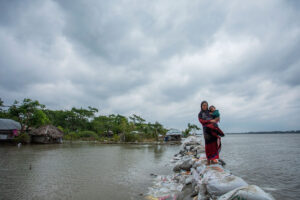
Tropical cyclones are hurricanes that brew over the tropical ocean and can travel over land, inundating coastal regions. The most extreme cyclones can generate devastating storm tides — seawater that is heightened by the tides and swells onto land, causing catastrophic flood events in coastal regions. A new study by MIT scientists finds that, as the planet warms, the recurrence of destructive storm tides will increase tenfold for one of the hardest-hit regions of the world. In a study appearing in One Earth, the scientists, co-author Sai Ravela, principal research scientist in MIT’s Department of Earth, Atmospheric and Planetary Sciences (EAPS), report that, for the highly populated coastal country of Bangladesh, what was once a 100-year event could now strike every 10 years — or more often — by the end of the century.
Ocean vital signs
How much carbon can the ocean absorb and how much more it can take?
Ocean vital signs
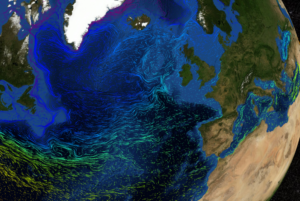
Researchers propose launching a fleet of oceangoing drones that would continuously monitor the flux of carbon dioxide between the atmosphere and ocean, helping to inform next-generation visualizations and models of the global carbon cycle.
Predicting sea-level rise
Can we predict sea-level rise from the physics of ice sheets?
Predicting sea-level rise
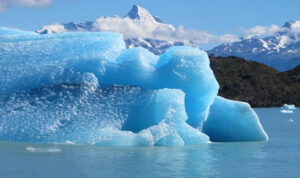
Brent Minchew, the Cecil and Ida Green Career Development Professor in the Department of Earth, Atmospheric and Planetary Sciences (EAPS), wants to more fully understand the most fundamental processes that govern rapid changes in glacial ice, and to use that understanding to build next-generation models that are more predictive of ice sheet behavior as they respond to, and influence, climate change.
The Team
-
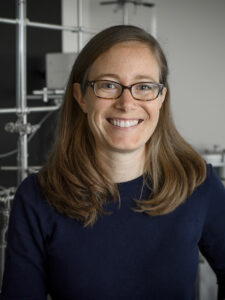
Kristin D. Bergmann
Earth, Atmospheric, and Planetary Sciences (EAPS)
-

Tim Cronin
Earth, Atmospheric, and Planetary Sciences (EAPS)
-

Alan Edelman
Mathematics
-

Kerry Emanuel
Earth, Atmospheric, and Planetary Sciences (EAPS)
-

Raffaele Ferrari
Earth, Atmospheric, and Planetary Sciences (EAPS)
-

Arlene Fiore
Earth, Atmospheric, and Planetary Sciences (EAPS)
-

Glenn Flierl
Earth, Atmospheric, and Planetary Sciences (EAPS)
-

Xiang Gao
MIT Center for Sustainability Science and Strategy
-

Mary Gehring
Biology
-

John Marshall
Earth, Atmospheric, and Planetary Sciences (EAPS)
-

David McGee
Earth, Atmospheric, and Planetary Sciences (EAPS)
-

Paul O'Gorman
Earth, Atmospheric, and Planetary Sciences (EAPS)
-

Sergey Paltsev
MIT Center for Sustainability Science and Strategy
-

Sai Ravela
Earth, Atmospheric, and Planetary Sciences (EAPS)
-

Daniel Rothman
Earth, Atmospheric, and Planetary Sciences (EAPS)
-
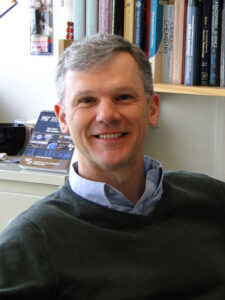
C. Adam Schlosser
MIT Center for Sustainability Science and Strategy
-

Noelle Selin
MIT Center for Sustainability Science and Strategy
-

Anne Slinn
MIT Center for Sustainability Science and Strategy
-

Yogesh Surendranath
Chemistry
-

Tim Swager
Chemistry
News
-
Study: Climate change may make it harder to reduce smog in some regions
May 22, 2025
-
Study: The ozone hole is healing, thanks to global reduction of CFCs
March 5, 2025
-
3 Questions: What the laws of physics tell us about CO2 removal
February 6, 2025
-
Explained: The 1.5 C climate benchmark
August 27, 2023
-
Climate change is changing the ocean's color
July 21, 2023
Please contact Jennifer Rosales if you are considering a gift to the School of Science.